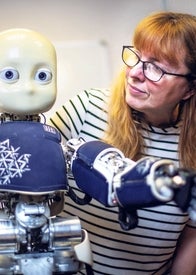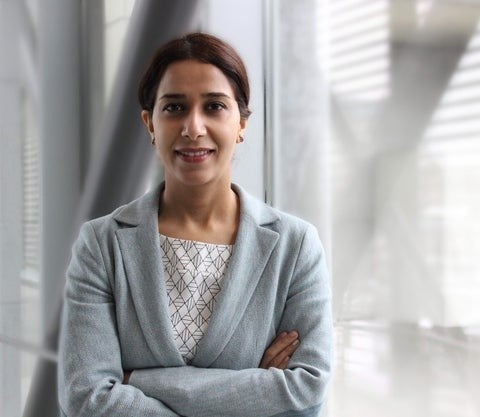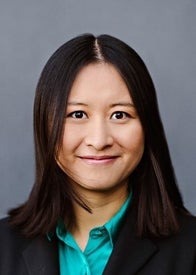


Research Chairs
BTQ Sponsored Research Chair
Guang Gong
This research initiative is supported through a Mitacs Accelerate award in partnership with BTQ Technologies Corp., a global quantum technology company focused on securing mission-critical digital systems.
Led by Dr. Guang Gong, the project, Enabling Efficient Zero-Knowledge Proofs–Based Post-Quantum Digital Signature Schemes, focuses on advancing cryptographic methods that are resilient to future quantum computing threats. Specifically, the research investigates the efficiency and practical implementation of Preon, a post-quantum digital signature scheme submitted by BTQ to the U.S. National Institute of Standards and Technology (NIST) as part of its post-quantum cryptography standardization process.
Through this collaboration, University of Waterloo researchers work closely with BTQ to explore secure, scalable cryptographic solutions based on zero-knowledge proof systems, with applications in next-generation digital security, networks, and infrastructure. The project runs through July 2026 and contributes to Canada’s growing quantum and cybersecurity research ecosystem.

Hydro One Research Endowed Chair
Claudio Canizares

Professor Canizares holds a Research Endowed Chair in support of Hydro One activities, particularly in the areas of Smart Networks and Emerging Industry Infrastructure.
Inria International Chair
Catherine Rosenberg

Dr. Rosenberg holds an Inria International Chair, a prestigious five-year appointment awarded by the French National Institute for Research in Digital Science and Technology (Inria). The chair recognizes sustained excellence and international leadership in research, particularly in the field of wireless communication and networks.
Inria is a leading global research institution dedicated to digital science and technology. Its research ecosystem includes more than 3,800 scientists working within 220 project teams, many of which operate in close collaboration with top universities and industry partners. Inria is known for advancing fundamental and applied research through interdisciplinary collaboration, innovation, and technology transfer.
This appointment supports research that advances the foundations of next-generation wireless networks, enabling applications in smart cities, autonomous systems, and data-driven digital infrastructure.
Loblaws Research Chair in Artificial Intelligence

Loblaws is a major sponsor of the Waterloo Artificial Intelligence Institute, with the Research Chair in Artificial Intelligence forming a core component of its support for the Institute. Dr. Fakhri Karray holds the Loblaws Research Chair in AI and collaborates with professors and researchers across the University of Waterloo to advance the application of artificial intelligence in inventory control, planning, purchasing, and supply chain management. This work supports Loblaws’ goal of becoming a global leader in the practical deployment of AI across retail and supply-chain operations.
Ripple - University Blockchain Research Initative Chair
Anwar Hasan

The University Blockchain Research Initiative (UBRI), supports academic research, technical development, and innovation in blockchain, cryptocurrency and digital payments. In addition to financial resources, Ripple has committed to collaborating with university partners by providing strategic guidance and technical resources as needed. The University of Waterloo is the only Canadian participant in the initiative.
Tier 1 Canada Research Chair in Multimedia Quality-of-Experience
Zhou Wang

The amount of multimedia digital content at our disposal (such as videos, images and audio) has exploded in recent years. It is constantly streamed to millions of TVs, tablets, laptops and smartphones around the world. In fact, multimedia content is what shapes the Internet as we know it. A key challenge facing both the research community and industry is how to provide innovative solutions that will enrich and enhance human experiences when we consume this content.
Since human perceptual systems (such as our visual and auditory systems) ultimately determine how we react to and experience such content, designing multimedia creation, distribution and presentation systems that optimize the perceptual quality-of-experience for users is critical. As Canada Research Chair in Multimedia Quality-of-Experience, Dr. Zhou Wang is developing computational models that can automatically predict and optimize human visual quality-of-experience when consuming multimedia content.
Wang has already helped invent the Structural Similarity Index (SSIM), which assesses perceptual visual quality. It has been widely used in the broadcasting and telecommunications industry to monitor and optimize the quality of video delivered to millions of users on a daily basis.
Now, Wang and his research team are using revolutionary, biologically inspired perceptual modelling and viewer intelligence approaches to develop new theories and technologies for end-to-end multimedia quality-of-experience measurement, optimization and intelligence solutions. These have the potential to reshape how multimedia content is processed, distributed and presented over communication networks. Ultimately, they will also improve individuals’ everyday perceptual experiences.
Tier 1 Canada Research Chair in Socially Intelligent Robotics
Kerstin Dautenhahn
Social robots are capable of interacting with humans and other robots using artificial intelligence. They have many potential beneficial uses, but innovations are needed to make these a reality. As Canada Research Chair in Socially Intelligent Robotics, Dr. Kerstin Dautenhahn is developing next-generation socially intelligent robots that can interact with people in a human-like manner to serve as assistive living tools.
She and her research team are working on computational methods that will enable socially intelligent robots to culturally adapt so they can support older adults. They are also creating machine learning approaches to enable robots to provide tailored therapy to children with disabilities. In addition, they are advancing socially intelligent robots as personalized coaches to help meet the mental health needs of teenagers and university students. Their aim is not to replace human therapists or caregivers, but to develop robots as complementary assistive living tools.

Tier 2 Canada Research Chair in Autonomous Systems
Stephen Smith

Dr. Stephen L. Smith, Canada Research Chair in Autonomous Systems, is working to develop the intelligence and planning algorithms that will power this next generation of robots.
His research tackles some of the fundamental challenges in creating robots that can seamlessly operate in human-centric environments.
Smith’s research seeks to create robots that possess several key capabilities. They should be capable of reacting to unexpected changes in the environment without delay.
They should improve their performance over time, leveraging their experience to predict future changes and re-optimize their plans. And, they should be able to communicate with users, understand the task they have been assigned, and even ask questions when more information is needed.
The goal of this research is to create robots that can be integrated directly into the current infrastructure, without requiring custom facilities. This would greatly expand the range of industries where autonomous systems can be deployed, enabling applications in agriculture, self-driving vehicles, flexible manufacturing and beyond.
Tier 2 Canada Research Chair in Health Monitoring BioNano Devices
Mahla Poudineh

Despite progress in biosensors for sensitive and rapid biomolecule detection over the past decade, the full potential of personalized medicine remains unaddressed due to limitations in existing sensors. Dr. Mahla Poudineh’s research focuses on creating first-of-its-kind platforms for non-invasive, personalized monitoring and treatment solutions for both inpatient and outpatient settings. Together with her team at IDEATION Lab, they are working to create technologies for the future of closed-loop health monitoring. The lab will utilize advancements in engineering and nanoscience to develop tools for continuous tracking of multiple disease agents and controlled delivery of the right drug at the right time.
Tier 2 Canada Research Chair in Nanoscale Devices and Circuits
Lan Wei
Gallium nitride (GaN) is poised to surpass silicon in high-speed, high-voltage applications—such as wireless communication and power electronics—enabling technologies from space communications to electric vehicles. Dr. Lan Wei, Canada Research Chair in Nanoscale Devices and Circuits, is advancing GaN-based devices and circuits to meet the requirements of commercial and industrial markets.
She and her research team are focusing on two areas: wireless communication in extreme environments, such as space missions and oil drilling applications, and high-energy-efficiency power delivery and power management systems for fast chargers, electric vehicles and data centres. Using a holistic approach that combines device physics, compact modelling, and innovative circuit design, their work will close key knowledge gaps and create tools for faster technology transfer. Ultimately, Wei is accelerating the commercialization of GaN technology and strengthening Canada’s leadership in this transformative sector.

University Research Chairs
University Research Chairs website
- Raafat Mansour, 2024
- Weihua Zhuang, 2024
- Krzysztof Czarnecki, 2023
- Kankar Bhattacharya, 2021
- Hany Aziz, 2020
Val O’Donovan Chair
Amir-Hossein Karimi

In 2025, Dr. Amir-Hossein Karimi was appointed to a Val O’Donovan Chair, a position that reflects the Faculty of Engineering's strategic commitment to advancing artificial intelligence through ethical research, interdisciplinary collaboration, and student
engagement. Beginning September 1, Dr. Karimi will hold the O’Donovan Chair in Trustworthy AI — a five-year appointment that includes $100,000 in annual research support.
Former Chairs
Canada 150 Research Chair in Intelligent Robotics
Cisco Research Chair
NSERC Canada Research Chair (Tier 1) in Micro and Nano Integrated RF Systems
NSERC Canada Research Chair (Tier 1) in The future Internet
NSERC Canada Research Chair (Tier 1) in Information Theory and Applications
NSERC Canada Research Chair (Tier 1) in Wireless Communication Networks
NSERC Associate Industrial Research Chair in Radio Frequency Micro Electro Mechanical Systems
NSERC/Bank of Nova Scotia Industrial Research Chair
NSERC/Ciena Industrial Research Chair
NSERC/DALSA Industrial Research Chair
Ontario Research Chair in Renewable Energy Technologies and Health
University of Waterloo Endowed Chair in Nanotechnology
University Research Chairs
- Fakhri Karray, 2018, 2011
- Guang Gong, 2017
- Zhou Wang, 2017
- John Long, 2015
- Ravi Mazumdar, 2013, 2005
- Shesha Jayaram, 2012
- Mohamed Kamel, 2008
- Manoj Sachdev, 2008
- Sherman Shen, 2007
- Catherine Rosenberg, 2004
- Magdy Salama, 2004
Val O'Donovan Endowed Chair
- Sujeet Chaudhuri, 2004
Research awards and honours
Asia-Pacific Artificial Intelligence Association
The main mission of Asia-Pacific Artificial Intelligence Association (AAIA) is to enhance the development and application of artificial intelligence by scientists in the field of artificial intelligence and other fields around the world through academic research, academic exchanges, science education, science exhibitions, academic conferences, academic publications, summer/winter camps and other activities.
2023
- Ravi Mazumdar
2021
- En-Hui Yang
Early Researcher Award Recipients
The Ontario government's Early Researcher Award goes to Ontario's most promising researchers in the first five years of their academic careers. The Early Researcher Award program is a successor to the Premier's Research Excellence Award program.
2024
2019
2018
2017
2016
2015
- Lin Tan
2014
2011
2010
2009
2008
2007
2006
2005
George Boole International Prize
The George Boole International Prize was established to recognize outstanding contributions in the domain of Boolean functions and related fields.
2023 - Guang Gong
NSERC E.W.R. Steacie Memorial Fellowship
NSERC’s E.W.R Steacie Memorial Fellowships honour the memory of Dr. Edgar William Richard Steacie, an outstanding chemist and research leader who made major contributions to the development of science in Canada during, and immediately following, World War II.
Every year, NSERC awards up to six Steacie Fellowships that are held for a two-year period. Successful fellows are relieved of teaching and administrative duties, so that they can devote all their time and energy to research. The Fellowships are held at a Canadian university or affiliated research institution.
2021 - Alfred Yu
2014 - Zhou Wang